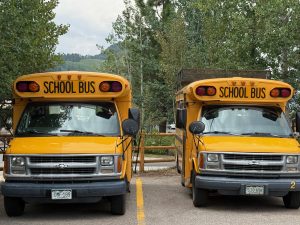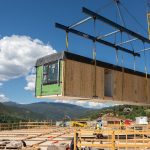Bruell column: Fighting for freedom: Lessons from John Lewis

Last Thursday, July 17, marked the fifth anniversary of the passing of civil rights leader Congressman John Lewis. In Glenwood Springs and 1,600 other locations across the nation, people gathered to honor Lewis’ legacy by speaking out against the cruelty and injustices of the Trump regime.
Lewis’ heroic story has much to teach us about the collective power of everyday people and our fight for freedom in America today.
When Lewis came of age in Alabama in the late 1950s, Jim Crow laws and white supremacist vigilante groups blocked Black people from even registering to vote. “Whites only” signs barred Black citizens from countless public and private spaces. The Ku Klux Klan terrorized Black neighborhoods while local law enforcement and government officials turned a blind eye to their beatings, bombings and lynchings. Many county sheriffs and police officers belonged to the KKK themselves.
The perpetrators of segregation and racial violence were bent on not only stripping Black people of basic civil rights but breaking their spirit as well. The “whites only” signs in storefronts, the bombings of Black churches and homes, and the targeted violence against civil rights activists were all intended to keep Black people and other people of color feeling scared, hopeless and powerless. It was a calculated effort to keep people from fighting back.
Yet countless brave Americans did fight back. Through marches, boycotts and sit-ins, they harnessed their collective power to make change happen.
At the age of 25, Lewis led 600 people on a march to protest the killing of Jimmie Lee Jackson, a young Black veteran and church deacon, by an Alabama state trooper. Soon after beginning their 54-mile march to the state capitol, police and state troopers assaulted the peaceful protesters with tear gas, bullwhips and billy clubs.
Instead of suppressing the resistance, this violent attempt at repression backfired. Protests erupted in 80 cities across the nation. Two days later, the Rev. Martin Luther King Jr. led over 2,000 marchers to the site of the attack, Edmund Pettus Bridge. Two weeks later, 25,000 demonstrators joined Dr. King to complete the march to Montgomery. Five months after that, Congress passed the Voting Rights Act.
Today, we are once again facing atrocities that many thought “couldn’t happen here” in America, while those in power try to convince us that we are powerless to stop them. The Trump regime is building concentration camps, sending masked, unidentified police forces into our neighborhoods to abduct people off the streets, and deploying the U.S. Marines on domestic soil as a show of force against protesters.
Like authoritarians throughout history, the Trump regime is trying to present themselves as all-powerful and convince us it would be futile to even try fighting back. We know from history, however, that fighting back is exactly what we need to do.
Across the globe, when authoritarian rulers have tried to dismantle democracies, studies have found that a key factor in whether or not those nations fall into authoritarianism is the existence of a sustained, nonviolent resistance movement consisting of a broad coalition of ordinary people. Where no civic resistance movement challenged them, authoritarian rulers have taken over in over 90% of those nations. In a majority of the cases where people organized a strong nonviolent resistance movement, they ultimately ousted the authoritarian regime — and rebuilt a stronger democracy in its place.
Protests are one critical aspect of effective pro-democracy movements. The coalition that organized the hugely successful No Kings protests, including hundreds of unions and social welfare groups, is now organizing the One Million Rising campaign to train all of us in another crucial strategy: noncooperation campaigns to build mass, decentralized pressure that will compel key institutions to shift their loyalty away from the Trump regime.
One hundred fifty thousand people registered for the first One Million Rising session last week. In that training, scholar of authoritarianism Maria Stephan explained that the Trump regime wants us to fight with each other, give up on persuading new people to join the resistance and feel isolated and powerless. Instead, we must do the opposite: remember the power that “we the people” hold, build community alliances, continuously bring more people into our diverse coalition and learn the nonviolent strategies that have toppled authoritarian regimes in the past.
We can start by going to http://www.nokings.org/rise to watch the first One Million Rising session, sign up for the July 30 and Aug. 13 sessions, and learn about hosting small Community Resistance Gatherings with our friends.
Anti-democratic leaders who abuse their power for their own personal wealth and gain will always try to convince ordinary people that they are powerless. If John Lewis, who grew up dirt-poor as the child of sharecroppers in the Jim Crow South, was able to hold fast to his belief in the collective power of ordinary people, surely we can too.

Support Local Journalism

Support Local Journalism
Readers around Glenwood Springs and Garfield County make the Post Independent’s work possible. Your financial contribution supports our efforts to deliver quality, locally relevant journalism.
Now more than ever, your support is critical to help us keep our community informed about the evolving coronavirus pandemic and the impact it is having locally. Every contribution, however large or small, will make a difference.
Each donation will be used exclusively for the development and creation of increased news coverage.








